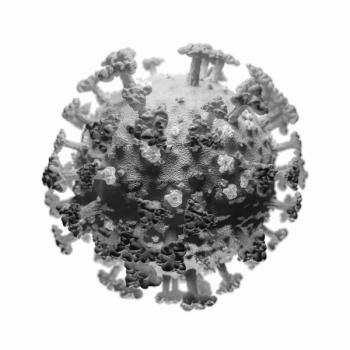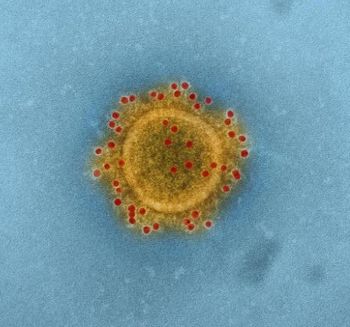
Jason Pogue, PharmD, BCPS, BCIDP, speaks about the state of publishing during the COVID-19 pandemic.

Jason Pogue, PharmD, BCPS, BCIDP, speaks about the state of publishing during the COVID-19 pandemic.

The following are notable recall statements released by the US Food and Drug Administration during the week of May 31-June 7.

A brief on today's top ID news.

Jason Pogue, PharmD, BCPS, BCIDP, answers questions about the emerging picture for hydroxychloroquine.

John Strotbeck, CEO of Boathouse Sports, discusses results of physical distancing measures at the firm's COVID-adapted factory.

The only new drug approved for COVID-19 treatment has limited efficacy, but is still desperately needed to fight pandemic.

Adam Brufsky, MD, PhD, addresses the potential for changing dynamics in SARS-CoV-2.

An assessment observing 4 states under stay-at-home orders showed all avoided worsened outcomes of severe infection rates.

The Merck combination antibiotic has been previously approved for cUTIs and complicated intra-abdominal infections.

Clinicians and researchers have questioned the likelihood of assembling the quantity of data supplied by Surgisphere on hydroxychloroquine in such a short period of time.

Matthew F. Pullen, MD, co-author of the recent hydroxychloroquine prophylaxis trial, shares the top clinical takeaways.

The test measures IL-6 to identify patients with COVID-19 at high risk of intubation.

About two-thirds of patients that reported loss of smell associated with viral infection actually had confirmed anosmia after objective olfactory testing.

Antimicrobial stewardship education was conducted with de-identified provider-specific prescribing scorecards.

Though most trace the coronavirus outbreak to China, a new analysis finds most of the cases in New York seem to have originated in Europe.

The trial consisted of non-hospitalized adults who indicated a high-risk or moderate-risk exposure to COVID-19 through the household or an occupational setting.

The vaccine had no serious adverse events reported in the 120 person trial.

Why people may need to readjust their expectations around COVID-19 clinical data and drugs.

Zinc supplements are widely available and have been linked with lower inflammation, but a new study finds it does not significantly lower mortality risk.

John Strotbeck, Olympian and CEO of Boathouse Sports, explains how and why the outerwear company pivoted to PPE production at the start of the COVID-19 pandemic.

A review of the latest infectious disease news.

An eventual COVID-19 vaccination should be prepared to face obstacles before distribution, so the groundwork for factual information dissemination should begin now.

Sarah Jorgensen, PharmD, MPH, BCPS, BCIDP, AAHIVP, provides a deep dive on the pharmacology and biochemistry of remdesivir.

While COVID-19 may have impacted flu-like illness reporting, the CDC estimates there were between 24,000-62,000 related deaths this year.

A study team investigated the ideal physical distance for avoiding SARS-CoV-2 transmission and assessed the use of eye protection and face coverings in preventing acquisition.

As of June 1, there have been at least 6 cases of Ebola detected in Mbandaka, a port city with a population of more than 1.2 million people.

Cefiderocol functions as a siderophore and has a novel mechanism of action which penetrates the outer cell membrane of Gram-negative pathogens.

Denise Bascow, MD, describes a platform for keeping up to date with the latest clinical information.

A look at the means by which clinicians are quantifying and evaluating the effects of the antiviral drug.